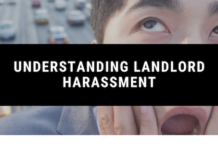If you’re a landlord and your tenants have moved out, you probably have some work to do before the next tenant moves in.
When it comes to inspecting your property, what can you charge a tenant for when they move out?
This helpful guide explains some of the things landlords can charge ex-tenants for after moving out so you can recoup some of your losses within the legal limits. Read on to learn more!
Damages
The term “damages” can be a bit subjective when it comes to your tenant and property. Sometimes people destroy their apartment, while in other cases they could only cause minor cosmetic blemishes.
Make sure you gave your tenant a move-in checklist when they signed the lease. You should give them another move-out checklist so you can compare and contrast the two after they leave.
If there are any glaring differences, there could be damages that you can charge for. If the tenant or their guests caused substantial damage to your property, you’ll need to make an itemized list before you can withhold the security deposit.
You’re able to use the security deposit toward any repairs as long as you document proof of damages. Take clear photos and write down anything you see that will cost you in repair work.
Generally, normal wear and tear are not considered as real damage to your property. For example, if the carpet looks a bit more worn than it did when your tenant moved in, you probably can’t charge them for it.
On the other hand, if there are massive holes in your walls, you can deduct the cost to repair the holes from the security deposit. As long as you document everything you see and notify your tenant, you should be within your legal rights to charge them.
When you notify your tenant of the damage, make sure you include either estimates or receipts for the repairs. This way, you have proof of the cost as well as proof that you made the repairs.
Make sure you always follow your state’s legal guidelines when it comes to withholding or refusing to return rental security deposits. Document everything thoroughly so you’re protected against pushback.
What About General Wear and Tear?
As a landlord, you always want your property to look its best before renting it to new tenants. Normal wear and tear is a part of life, and you cannot usually take that from a security deposit.
Determining what falls under the umbrella of wear and tear can be a fine line between that and actual damage. As long as the tenant kept the place clean, you will be responsible for patching up things that suffered from normal wear and tear.
Sun-faded paint and wallpaper is something you can’t control, and a fresh coat of paint should fix the issue. Other examples of normal wear and tear include nail or thumbtack holes in the walls where the tenant hung things like pictures and artwork.
If an appliance is no longer working due to age, you cannot charge your tenant to replace it. However, if it appears that the appliance stopped working due to misuse, you may be able to recover the costs of replacement.
Windows and doors can warp due to age and temperature changes, and drapes or blinds can get dirty over time. These small items are typically considered wear and tear and shouldn’t be charged to the tenant.
As long as things are not a result of negligence, carelessness, or abuse, it’s usually considered wear and tear. You can usually tell right away when a tenant has been careless or abusive toward your property, appliances, and other items.
Broken Lease and Nonpayment Issues
Sometimes tenants need to move out before their lease period expires. If this happens, you cannot automatically keep their deposit, even if they broke the terms of the lease.
There must be actual damages incurred to your property to hold the deposit unless the tenant is behind on rent. If your tenant left without paying rent or utility costs, you’re within your rights to hold their deposit to help pay the unpaid balance.
You can also hold money if the tenant did not pay for items like parking costs or administrative fees. Abandoning the property means that the tenant will not likely pay for these items, which means you can use the deposit to offset the cost.
Remember that a lease is a legally binding contract. If your tenant breaks it, they are liable for nonpayment. You could even take them to court for the remainder of the rent if their deposit doesn’t cover whatever is leftover.
Keep in mind that going to court and filing suit might end up costing you more money than you could recover from the tenant. A judgment might be hard to collect, so you’ll end up footing the bill for court costs and attorney’s fees.
You may sue tenants for any remaining balances from unpaid rent, but make sure the amount due to you is worth the headache. In some cases, you might be better off starting fresh and looking for a more reliable tenant.
What Can You Charge a Tenant For When They Move Out When it Comes to Cleaning?
When most tenants move out, they’re probably not worried about doing a deep clean before they leave. That means you’re left to sanitize and clean your property before someone else moves in.
Cleaning can be costly, especially when it comes to carpets. Many landlords include a clause in the lease that requires tenants to have the carpets professionally cleaned before they move out. If the tenant fails to do so, you can take the cost from their deposit.
Make sure you include very clear language in your lease that explains your expectations of cleaning upon move-out. If you don’t, the tenant can easily refute that there were no clear guidelines in place.
A dirty oven and refrigerator are not necessarily worthy of a charge. However, if the tenant leaves the property trashed and filthy, you could withhold some money for a professional cleaning within reason.
Trash, rotting food, and junk are all items that cost money to remove and clean up. Take photos of the mess your tenant left behind to justify the cost of having everything cleaned up.
General dirtiness and messes may not fall under the guidelines of being able to charge a tenant. However, if your place is completely filthy and neglected, you should be able to recoup the cost to get it back to rentable condition.
If you’re expecting your property to be spotless when tenants move out, you’re in for an unpleasant surprise. Most people are in a hurry to move out, and they don’t take the time to clean everything before they go. Ideally, you should have the property professionally cleaned anyway before someone new moves in.
Charging For Paint
Some landlords like to paint the walls with a fresh coat before they rent to new tenants. You probably cannot charge for the cost of hiring a painter in most cases.
If your tenant had children who scribbled on the walls or if someone decided to spray graffiti, you could deduct from the security deposit to paint over it. Keep in mind that this charge legally only applies to the rooms where the damage occurred.
For leases that prohibit smoking, you can charge if there is evidence that someone smoked in your property. Smoke smells and nicotine stains are things that landlords may charge for to correct, especially if it’s clear that smoking was not allowed.
What can you charge a tenant for when they move out if they painted the walls without your permission? As long as the color is decent and they did a good job, it’s usually best to leave the issue alone. On the other hand, if they painted the walls plaid, you could technically charge them for a new paint job.
Recoup Your Losses
When you ask what can you charge a tenant for when they move out, use this guide to help you determine when and why you should send a bill. Overall, general wear and tear isn’t a big deal.
Unpaid rent, broken leases, and significant damage to your property are all valid reasons you should hold a security deposit and send a bill.
Whether you’re a tenant, landlord, or investor, visit our website today and contact us for the latest news in the rental industry.















